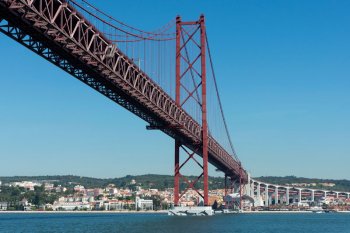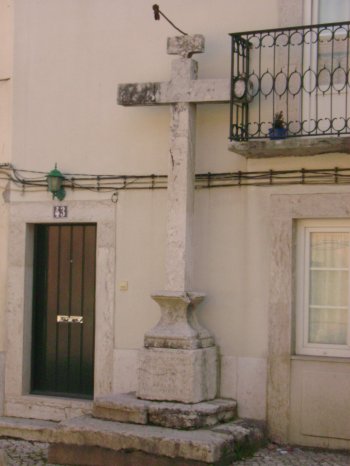Explore the best places
Heritage in Portugal
Fonte Luminosa da Praça do Império
- heritage
Praça do Império
1400, Lisboa
Built in 1940, this fountain is placed in front of the Império Monastery and, in special events, it lights up in a spectacular way.

Palacete Oitocentista na Rua do Lumiar
- heritage
Rua do Lumiar, 142-146
1750-164, Lisboa
Pombal Palace of rectangular plan with two floors, with still about coverage, dormers. The main façade is very simple, with only the round arch portal.

Ponte Vasco da Gama
- heritage
Ponte Vasco da Gama
1800, Lisboa
The Vasco da Gama bridge across the Tagus River, linking the region of Montigo and Alcochete to Lisbon and Sacavém. April 4, 1998 was inaugurated, at the time of Expo 98 in Lisbon. Is one of the longest bridges in the world, with approximately 17 kilometers long.

Ponte 25 de Abril
- heritage
Ponte 25 de Abril
1300, Lisboa
The 25 de Abril Bridge-formerly called Salazar Bridge is a railroad bridge-which links the city of Lisbon to Almada, crossing the estuary of the river Tagus. Is one of the Ex-Libris was one of the Lisbon region, having been inaugurated in August 6, 1966.



Cruzeiro da Ermida de São Sebastião
- heritage
Rua Direita
1600, Lisboa
Cruise dating from 1680, based on a square platform with two steps. Features a monolithic box plinth, a small frame with inscription and a second plinth of concave profile with a Latin cross.

Chafariz do Século
- heritage
Rua do Século
1200, Lisboa
Dated from the XVIII century, this fountain is a fronton boxed in a stone wall. Its three bronze ajutages spout water to the shell.

Chafariz do Boneco / Fonte de São João Baptista
- heritage
Largo Júlio de Castilho
1600-483, Lisboa
Neoclassical revival fountain, centralized type, consisting of a punch, two small rectilinear tanks which adossa a third, a padded plinth with two cocks and the encimar, an allegorical figure in the water.

Obelisco dos Restauradores
- heritage
Praça dos Restauradores
1100, Lisboa
Located at the Praça dos Restauradores, it was built in 1886, pay homage to those who died during the Restauração War. The Bronze figures on the pedestal symbolize the victory and the liberty. The names and dates on the lateral part of the obelisk refer to the battles.
